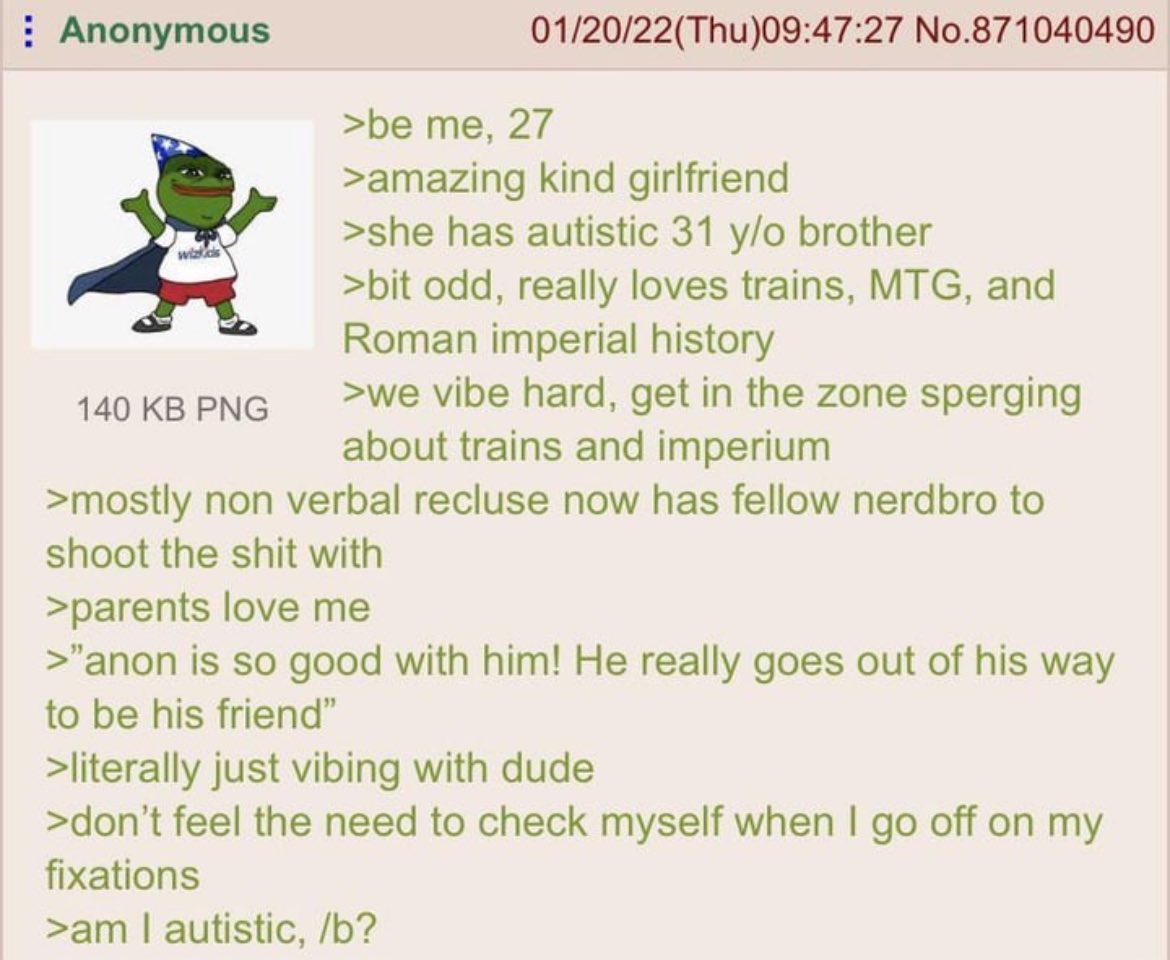this post was submitted on 08 Jul 2024
809 points (98.8% liked)
Greentext
4453 readers
1530 users here now
This is a place to share greentexts and witness the confounding life of Anon. If you're new to the Greentext community, think of it as a sort of zoo with Anon as the main attraction.
Be warned:
- Anon is often crazy.
- Anon is often depressed.
- Anon frequently shares thoughts that are immature, offensive, or incomprehensible.
If you find yourself getting angry (or god forbid, agreeing) with something Anon has said, you might be doing it wrong.
founded 1 year ago
MODERATORS
you are viewing a single comment's thread
view the rest of the comments
view the rest of the comments

Same here, similar age.
When i got diagnosed with ADHD a few years ago, ny psychologist mentioned that I'm probably on the spectrum as well, but that getting an official diagnosis wouldn't really help anything and she wasn't sure I would even get one.
But having the realisation really opened my eyes though, I now understand better why certain situations always made me irritable and made me have much more peace with my own limitations.
I always knew I was a bit 'off', and knowing I'm on the spectrum kind of felt like the last pieces of the puzzle fell in place.
Some people definitely can benefit from a diagnosis, even later in life. Especially if it’s the missing ‘piece of the puzzle’ like you mentioned.
For me, the things that might feed into a specific diagnosis also are just… the way I am. It’s not like I’m suddenly going to work on them because now there’s a label attached. They’re the quirks that make me, me.
I grew up in an era where autism basically didn’t exist. You just were a bit - or a lot - weird. And you had to conform or deal with it on your own. Nobody was ‘on the spectrum’ when I attended school. So I wouldn’t be surprised if there were a lot of adults out there who have missing puzzle pieces.